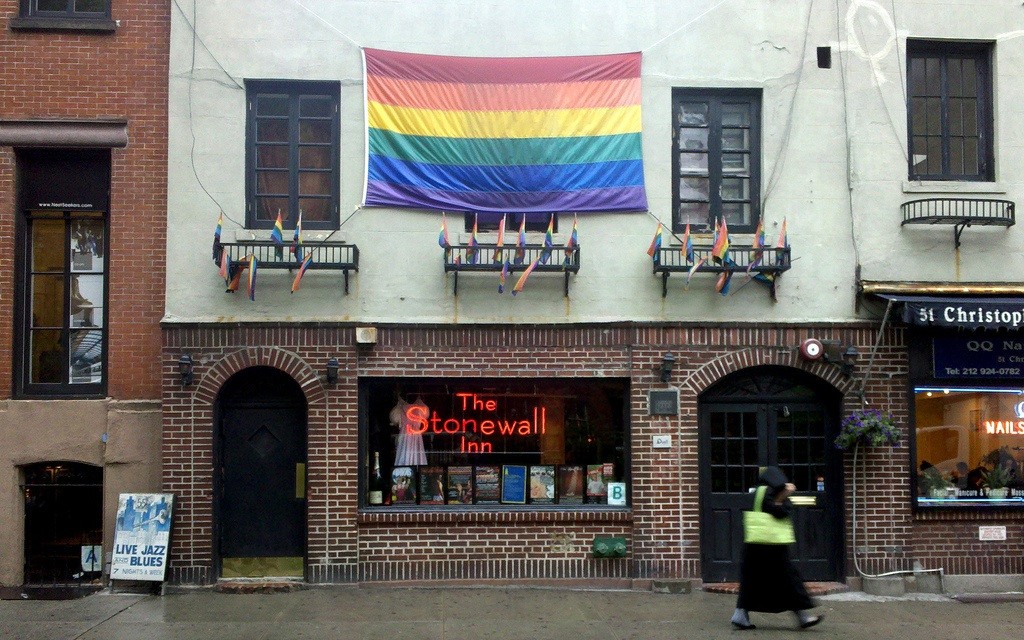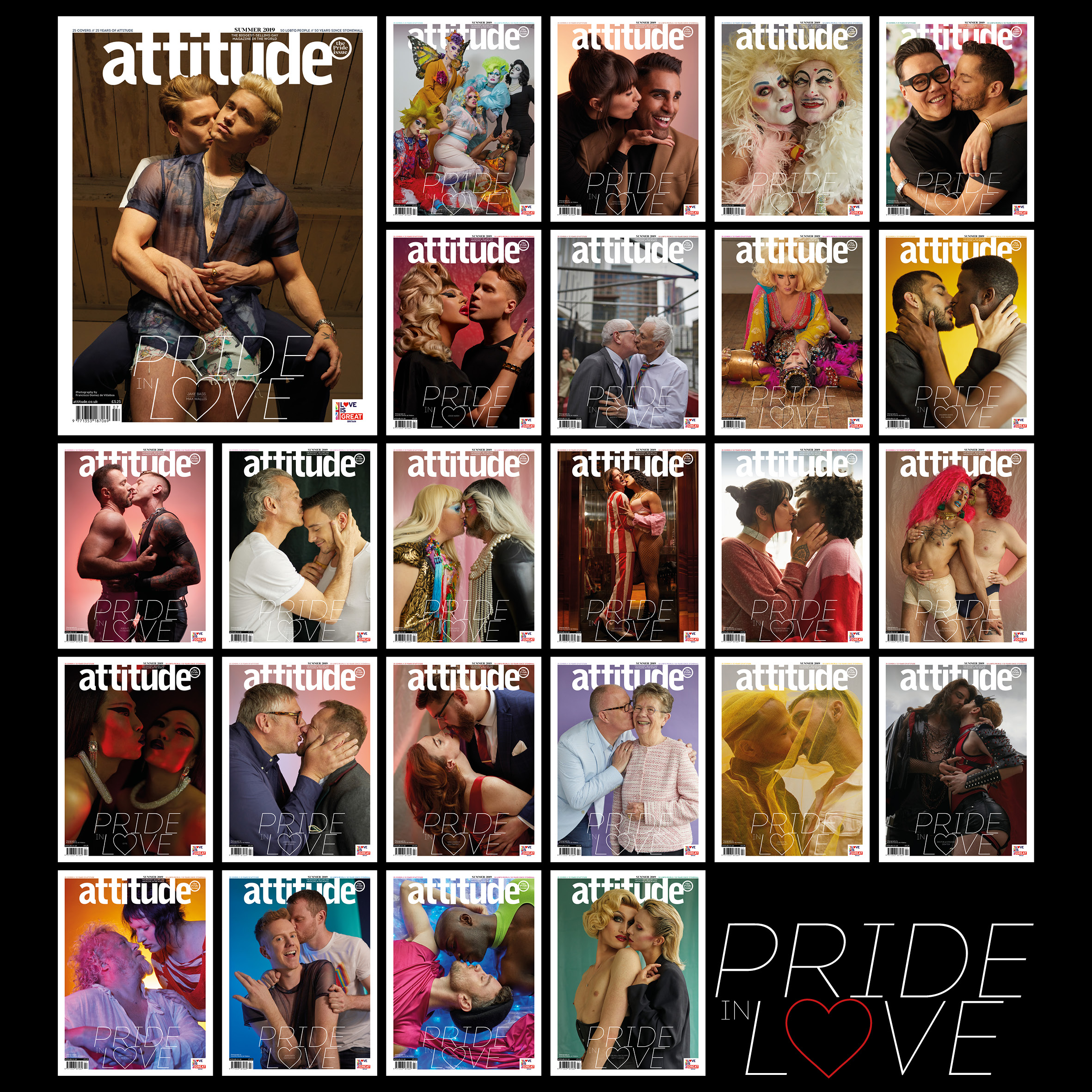Stonewall 50: ‘We need put away our keyboards and actually take to the streets again’
Matthew Todd says LGBTQ equality may mean very little in the collapse of civilisation
By Steve Brown

This article was published in our Summer Pride issue 311.
Pride season is here, but never forget that the defining moment in our history that it marks was no party.
It was a violent, bloody — and legitimate — battle. With all the talk about Pride becoming more and more commercialised, it’s easy to forget the reality that the Stonewall riots, which Pride events immortalise, were just that: riots.
As drag queens, street kids, people of colour, butch lesbians and many others, resisted arrest, in the early hours of 28 June 1969, rocks were thrown and parking meters were pulled from the ground to be used as battering rams.
Police off icers were forced to barricade themselves in the bar they were raiding. The man who led the raid, deputy inspector Seymour Pine, knowing his men’s lives were in danger, stopped them from fi ring on the crowd just long enough for reinforcements to arrive — narrowly avoiding a bloodbath.
It’s not widely known but there was one fatality. On the second day of unrest, a taxi driver took a wrong turn and, surrounded by angry crowds, had a heart attack.
In the past 30 years, certainly in the UK, LGBTQ activism has evolved into campaigning, lobbying, and negotiating. And it has been remarkably successful.
But through that success, it seems we have forgotten that sometimes change only comes when people ignore the rules and, when needs be, even break the law.
Arguably, even the cause of the riots has been sanitised. In his brook, ‘Stonewall: The Riots That Sparked The Gay Revolution’, David Carter suggests the narrative that the crowd rioted just because they were upset about Judy Garland’s death (she was buried on the eve of the unrest) was perpetuated to dismiss the very real anger on the streets.
In reality, this was the end of an extremely dangerous decade, during which people witnessed the Cuban missile crisis, that almost heralded nuclear armageddon, President Kennedy’s assassination, the fiercest battles of the civil rights movement, the anti-Vietnam War protests, and women demanding autonomy over their bodies with contraceptives and abortion.
The post-WWII generation created the peace-and-love hippy movement. Across the world, people power was causing change.
The year before Stonewall, Parisian student protests evolved into widespread civil disobedience, forcing President Charles De Gaulle to flee France and call an election. The tensions between different narratives of how we should go about forcing change have long existed.
In the aftermath of the Stonewall riots, local figures Marsha P Johnson and Sylvia Rivera, two people of colour many believe would now identify as trans or nonbinary, set up the Street Transvestite Action Revolutionaries group to help homeless street kids, the gender-non-conforming and other marginalised people.
For many years, neither of them were embraced and footage from NYC Pride 1973 shows Sylvia being jeered on stage as she demands help for queer people in prison. Later that evening she attempted to take her own life.
That said, it was recently announced that both are now to be honoured with a monument close to the Stonewall Inn.
In the Eighties, when the Aids crisis heralded a new wave of homophobia and inaction from President Reagan, activists such as Larry Kramer called for a more aggressive response.
He helped form ACT UP, the Aids Coalition To Unleash Power, which staged direct action and explosive protests, targetting, among other institutions, the Church, pharmaceutical companies and the homophobic media. This drew significant publicity and controversy.
In the UK, Thatcher’s homophobic legislation, Section 28, was met with protests, including lesbian activists storming the BBC Six o’Clock News and abseiling into parliament.
But it still became law. In its aftermath, in 1989, a group of activists, including Ian McKellen, Lisa Power and Michael Cashman, set up a new national lobby group to deal directly with politicians and the media.
The idea was to have calm, serious conversations instead of waving placards and shouting and screaming.
But some activists, including Derek Jarman, disagreed, believing anger was more appropriate and branding Stonewall’s tactics as a capitulation to “the politics of respectability.”
In May 1990, when gay actor Michael Boothe was beaten to death by a group of men in a public toilet, a new group was formed, named for a reaction its members felt was more fitting: outrage.
In those early years, much was made of the differing approaches.
While Outrage! took the battle to the streets with angry, provocative RUN RIOT placards about gay sex, and protested against the Archbishop of Canterbury in the middle of an Easter sermon, Stonewall had quiet conversations with MPs.
Ian McKellen went to Downing Street to discuss gay rights with Prime Minister John Major.
In the end it became clear that both approaches, ironically, complimented each other.
It’s entirely true that Stonewall has dramatically changed the lives of LGBTQ people in the UK, but it’s also true that Outrage! helped make the public, media and politicians more aware of the injustices that the establishment had to address, and created ever more need for engagement.
In recent years, it’s seemed that angry, take-to-the-streets political activism has diminished, both in LGBTQ politics and the wider world.
We live in world of immense consumerism, conformity and online validation. There is pressure to not step out of line and when anyone does so, the British can be quick to condemn.
But could it be that a new era of major protest is emerging? Certainly, the need is as great as ever. Parallels with the Sixties are significant.
Today, we live with attacks on transgender people, outrageously disproportionately higher levels of HIV infections among gay and bisexual men of colour, the growth of the Far Right across the world, President Trump’s threats to the stability of the world, and, in my opinion, the most worrying threat of all: the breakdown of nature.
The protests outside the Dorchester Hotel, against the Sultan of Brunei’s death penalty for homosexuality, created signifi cant publicity for an energised group of young queer people.
But where I see the spirit and determination of the Stonewall pioneers most is in the queer activists who are part of environmental protest group Extinction Rebellion.
In some ways, they carry the spirit of Marsha P Johnson and Sylvia Rivera most powerfully, with an understanding that even though an issue may not seem of specifi c and explicit relevance to the LGBTQ movement, everything is connected.
There is no full liberation for queer people until we address class inequality, racism and sexism, and if, as David Attenborough says, the collapse of civilisation is on the horizon, LGBTQ equality may mean very little.
If Stonewall remains a reminder that in the face of huge threat we have to put the keyboards away and actually take to the streets, then those people who fought for us 50 years ago, and since, will have a legacy to be proud of.
Matthew Todd’s book Pride: The Story of the LGBTQ Equality Movement is out now. whyihavepride.com
Attitude’s Summer Pride issue supported by the GREAT Britain campaign is out now, featuring 25 special edition covers which can be ordered individually with free postage and packaging by emailing attitude@attitude.co.uk.
Buy now and take advantage of our best-ever subscription offers: three issues for £3 in print, 13 issues for £19.99 to download to any device.

